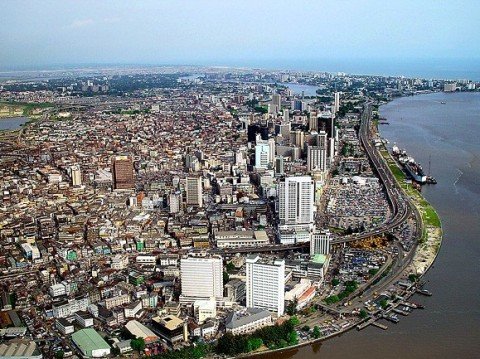 Nigeria is arguably the worst run of the world’s seven most populated countries. Despite earning hundreds of billions of dollars in oil revenue over the past decade, it is expected by 2015, by some calculations, to have the second-most destitute people in the world after India. But its largest city, Lagos, which until recently was known as one of the world’s most difficult cities to govern, seems to have turned a corner. As I argue in a recent article in the New York Times, one of the chief reasons for this better performance is the nature of incentives that elites and politicians face:
Nigeria is arguably the worst run of the world’s seven most populated countries. Despite earning hundreds of billions of dollars in oil revenue over the past decade, it is expected by 2015, by some calculations, to have the second-most destitute people in the world after India. But its largest city, Lagos, which until recently was known as one of the world’s most difficult cities to govern, seems to have turned a corner. As I argue in a recent article in the New York Times, one of the chief reasons for this better performance is the nature of incentives that elites and politicians face:
At least in democracies, the cities have promise because their elected politicians face pressure to deliver specific services to their constituents. In the central governments, which are more remote, there is too much power and wealth to be grabbed by dysfunctional politicians and their cronies, and too little direct accountability. . . . The turnaround in Lagos can be traced to 1999, when Nigeria returned to democracy and the city began holding regular elections. For the first time since independence, Lagos was able to re-elect its own leaders, or turn them out of office. And while national elections became a mud fight between elites to control the state’s enormous oil wealth, local contests forced candidates to show pragmatism and competence.
There are a number of reasons why cities ought to have better political incentives than fragile states:
Citizens in densely populated cities find it easier to organize themselves. And in an ethnically and religiously diverse metropolis like Lagos, politicians could not afford to pit ethnic and religious groups against one another, a problem that has long bedeviled Nigeria. Simple geography also helped the city administration. The powerful and wealthy classes are more likely to insist on better governance when their own neighborhoods are affected. And unlike national politicians, local leaders know that the better they perform, the more money their city nets. The better its roads, schools and business environment, the more likely companies will pay taxes, and individuals will buy goods and services, which also contribute to the tax base. At the national level, by contrast, the great majority of the central government’s income has little to do with government’s performance, since about 75 percent of the national budget comes from the $50 billion a year that Nigeria collects in oil revenue.
Taxes are a crucial part of this equation. The more politicians depend on local taxes, the more likely they will be accountable to their constituents. A city provides a much better avenue to strengthen this link than a state, given the latter’s sprawling nature and inability to project authority across distance in countries with weak government.
If local politicians were better able to raise and regulate local taxes, they would find themselves more accountable to the population. And they would presumably establish a more welcoming local environment for business to flourish, and perhaps start a nationwide chain reaction unleashing the country’s famous entrepreneurialism. If income levels rose, education and a rising middle class might follow.
Property taxes, in particular, hold a lot of promise for local governments and are easily the most unexploited revenue source in most countries. Taxes on land use, businesses, consumption, and income, as well as fees for various administrative services and licenses, can also provide much-needed income. Lagos has increased its annual revenue from US$3.7 million in 1999 to $124 million in 2013, and now earns three-quarters of its budget locally. Other cities have outperformed their countries at times:
In Medellín, Colombia, the city government outshone the national government in the late 1990s by setting up a network of publicly funded business support centers, investing strategically in transportation and security, and introducing its own program of cash grants to help the poor. Cities such as Chennai and Hyderabad in India have similarly outperformed India’s national government in promoting growth, educating children and reducing crime and poverty.
Devolving more power to cities is not a panacea. Many local governments have the same weaknesses as national administrations. Some have worse capacity constraints. Others may be even more prone to elite capture than countries. But in places such as the Democratic Republic of Congo, Pakistan and Kenya, cities could be the basis for a similar city-centered model of development.
Regular local elections could spur significant changes in Kinshasa, Karachi and Nairobi, respectively, if the cities were granted more autonomy and the tax base was broadened to make government more dependent on local citizens and companies.
Given how rapid urbanization is changing the landscape across the developing world—almost half of the developing world’s population now lives in cities, and this proportion is expected to increase to two-thirds within a few decades—and the fact that the city is now the main driver of growth and stability across Africa, the Middle East and South Asia, a focus on cities is essential to all these countries’ futures.



